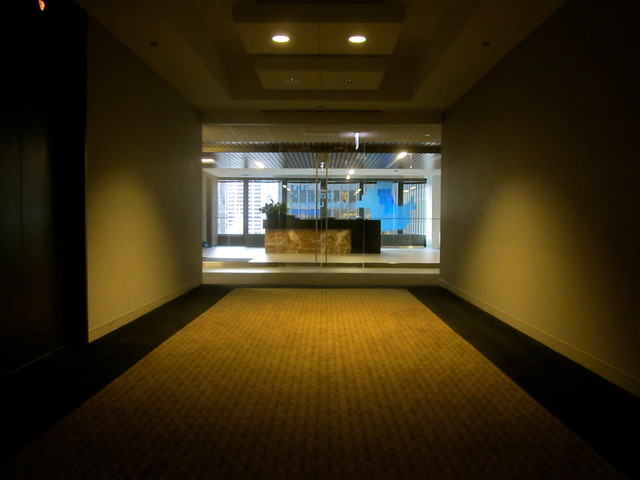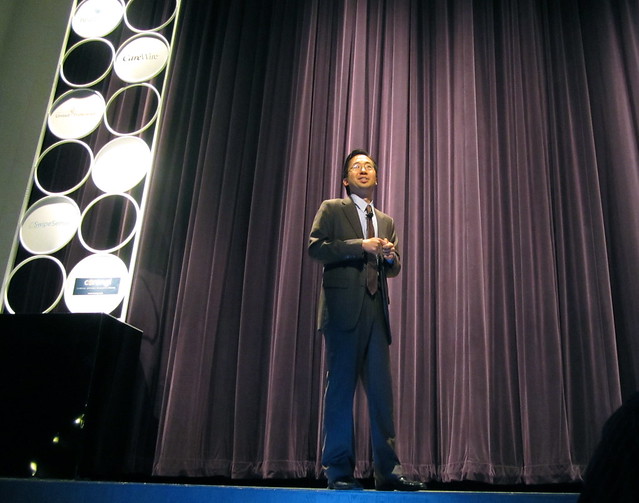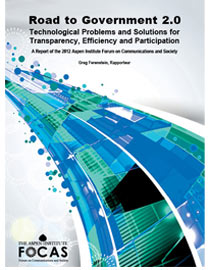Tonight I co-presented at the Chicago: City of Big Data Pecha Kucha with my colleague and friend Lola Chen.
Here’s the presentation, along with complete text below.
I’m Dan O’Neil, and I run the Smart Chicago Collaborative, a civic organization devoted to improving lives in Chicago through technology. I’m here with Lola Chen, a community advocate here in Chicago. We are going to talk about the role of humans in big data in an urban environment.2.
I think it has a great role to play in helping understand how to run a city. The understanding of facts is critical to a just society. And what makes sense for other segments of our culture and economy can make sense for government.
3.
And much of my career has been devoted to data. I’ve made data-driven web products for the last decade. Smart Chicago Collaborative is a national leader in the creation of civic apps. We were the impetus behind bringing Open 311 to Chicago. I guess the point is, I know of what I speak.
4.
In my work at Smart Chicago, I’ve come to deeply appreciate the value of humans. They make all data. Data is a subset of humanity, not the other way around. I’ve seen first-hand what happens when the fetish of data can make everything go wrong.
5.
So I am dubious of any discipline that seeks to help people that doesn’t seem to really include people in meaningful ways. Remember how stoked Burgess Meredith was in the Twilight Zone when all the people were gone and he was left with his books?
6.
Pretty much every time I see something in the world of “big data” or “predictive analytics”, there is never any mention of humans. As if the machines are autochthonous, indigenous, comes from nowhere and knows everything. Empty of humans.
7.
But of course humans have made everything. And they are the most versatile and capable objects on earth. Burgess Meredith got pretty bummed when he immediately broke his glasses and couldn’t read any of his glorious books. His myriad word repositories were of no use. If only there was one other human left to read to him.
8.
I’ve come to know Lola through the OpenGovChicago meetup and she’s helped me greatly in my work at Smart Chicago. She is an amazing Chicago resident. She values data and technology, and is one of the best humans I know.
9.
Lola Chen is the master of the email. As I was preparing for this event, and I was pondering the value of humans in big data, she wrote me one of her missives. In it, she wrote, “Any alert person can ride the streets of Chicago and see the pattern of pothole problems. The ride might take 4 hours or so. The making notes might take 1 hour.” This is what I mean. This is the value of humans. So I yield the remainder of my Pecha Kucha to the great Lola Chen.
10.
Hi there, my name is Lola Chen, a self-confessed extreme data hog. I moved to Lincoln Park in 1969, right around when the federal government declared the area the first urban renewal blight zone. I first bought properties in Bucktown in 1984. I moved to East Garfield Park in 1998. All throughout, I collect data.
11.
Everywhere I go I ask the question “when might data be flawed”. I interviewed all sorts of residents and visitors from all over the world. All have seen Chicago Potholes. Data can be incomplete, biased, omitted, inaccurate, misclassified, or falsified. I have seen all of these.
12.
Here’s a practical example of the lack of data sharing. I had parked far from the curb due to a deep pothole. They gave me a ticket for being more than 13 inches from the curb. One piece of data that should relate to another. I GOT OUT OF THE TICKET.
13.
Data can be falsified faster than you think. I monitored grass cutting in vacant lots owned by the City. The workers knew they had GPS installed on the tractors, and they went up and down the lot, showing through through data that the lot was cut. But they lifted the blade so that no grass was cut. The lot was marked as done. It was not.
14.
Here we have a KINZIE INDUSTRIAL CORRIDOR series of long potholes going down the street that are DEEP. Chicago is currently promoting a return to manufacturing with hopes of creating new jobs. THAT IS WHY THESE POTHOLES ARE RELEVANT. There are patterns, visible, if you look.
15.
This lovely Lincoln Park ALLEY Pothole has a mural as a backdrop. Stanley’s is a neighborhood fruit market institution opened by Greek immigrants in the 1960s who have succeeded in expanding almost every decade. DON’T REALLY THINK AN ALGORITHM COULD PREDICT POTHOLE/MURAL
16.
This Humbolt Park CATCH BASIN Pothole seems to be accessorized with roadwork paraphernalia. Today the paraphernalia runs for almost 1 block it has been there so long. The paraphernalia becomes permanent. COULD AN ALGORITHM SPEED UP ROAD REPAIR?
17.
This sewer pothole was misclassified as fixed. It was not, however, fixed. This is shoddy workmanship that leads to multiple visits to the same issue, leading to more work for contractors and more dollars out of our pockets. The data saw “fixed”, but it was nothing of the sort.
18.
Here you can see the impetus of my note to Dan. Any alert person can see the issue with the seam in the asphalt. I’ve seen it all over, and reported it to a number of commissioners. The Inspector General is now looking into this.
19.
The City collects and stores enormous amounts of data, but the data is flawed, and there’s not enough. We need drones, satellites, patrol cars, garbage trucks, all collecting data and making 311 requests. There are no mechanisms to address these flaws. We need more people— smart City workers who know the data— cleaning this up. Let’s do it.
20.
So thank you to all the people who helped me put this together. If anybody in the world knows how to fox potholes, please send us some ideas!






